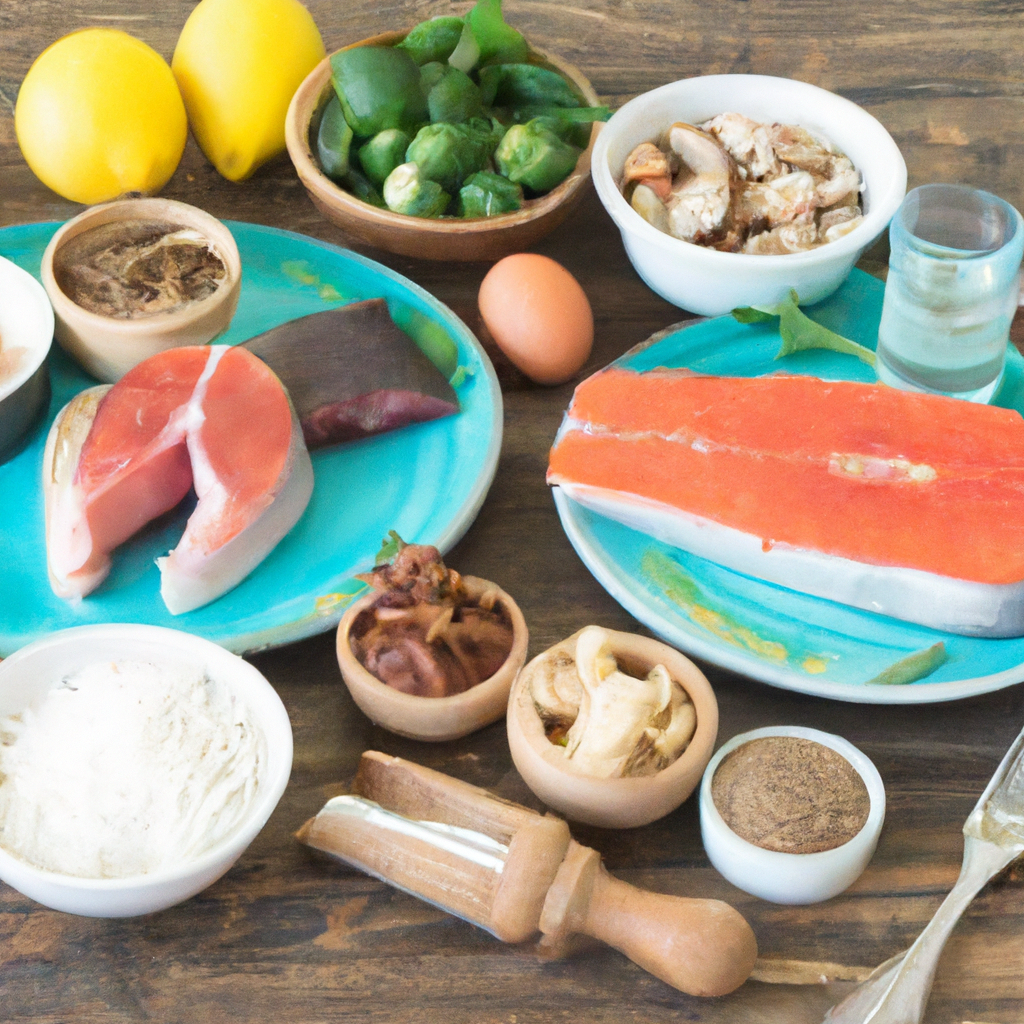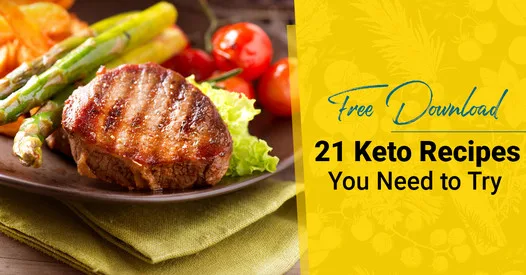Imagine yourself embarking on your keto weight loss journey, full of new-found enthusiasm and determination. One of the first things you might ask yourself is, “How will I get my proteins?” If you’re in this boat, you’ll appreciate the insights provided in “Protein-rich Foods in Keto Weight Loss”, an article that elaborates on a variety of foods that fit perfectly into your diet plan. It not only highlights the importance of proteins in your keto journey but also guides you towards making healthier, protein-rich dietary choices. So, why wait? Let’s jump right into exploring this valuable resource!
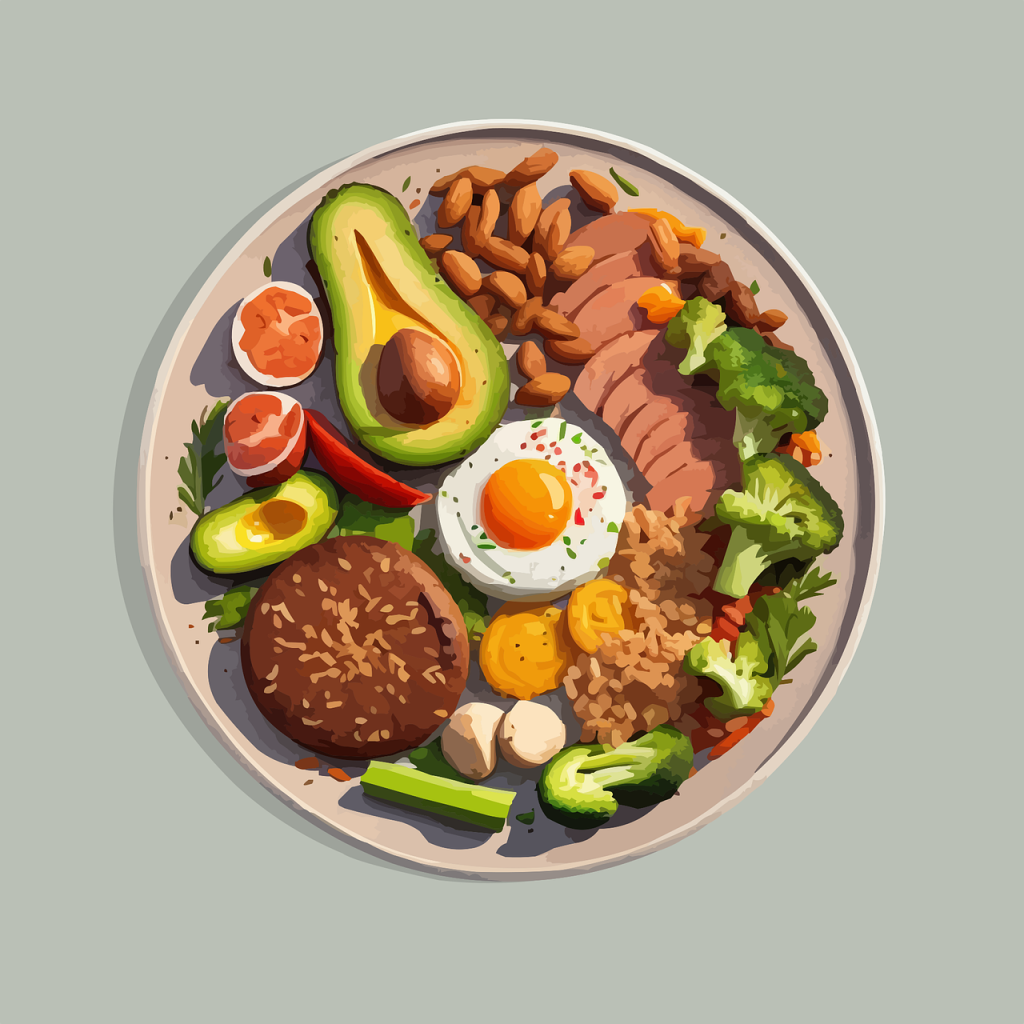
Understanding the Keto Diet
In an age where there is an endless plethora of diets to choose from, one has made a powerful mark in the world of health and fitness — the Keto Diet. Unlike many other diets, the Keto Diet is not just about restricting food intake but is more about altering the energy source for your body.
Concept Behind Keto Diet
The concept behind the Keto Diet is simple yet incredibly innovative. It is based on the principle of sending your body into a state known as ‘ketosis’, wherein it begins to burn fat as the primary source of fuel instead of carbohydrates. This process of burning fats, in turn, leads to weight loss.
How Keto Diet Works for Weight Loss
So, how does this fat-burning process result in weight loss? Generally, your body relies on glucose (obtained from carbohydrates) for energy. When you reduce your carbohydrate intake significantly, the body exhausts the stored glucose and starts to break down stored fat for energy, resulting in weight loss.
Benefits of the Keto Diet
The Keto Diet has multiple benefits apart from weight loss. It has been found to reduce blood sugar and insulin levels, making it a robust choice for people with diabetes or insulin resistance. Furthermore, research suggests that it may also be beneficial in fighting heart disease, cancer, and even diseases like Alzheimer’s and epilepsy.
Importance of Protein in Keto Diet
In the jigsaw puzzle of the Keto Diet, protein plays an important role. Understandably, fats form a large part of a ketogenic diet; however, the significance of protein cannot be underestimated.
Role of Protein in Weight Loss
protein plays a crucial role in weight loss. It keeps you feeling full and satiated which reduces the feeling of hunger, leading to lower overall calorie intake. It also aids in maintaining and building lean muscle mass, consequently accelerating your basal metabolic rate (the number of calories your body burns while at rest).
Effect of Protein on Ketosis
Protein’s important role doesn’t end with weight loss. It affects the state of ketosis too. moderate intake of protein, along with very low carbs and high fat, can help maintain the delicate balance required to keep your body in ketosis.
Advantages of High Protein intake in Keto Diet
Including ample amounts of protein when on a Keto Diet can offer several benefits. It aids in preserving muscle mass during weight loss, helps in repairing tissues, and plays a vital role in various bodily functions. Plus, high-protein foods have been linked with boosting metabolism and weight loss.
Examples of Protein Rich Foods for Keto Diet
A variety of protein-rich foods can be seamlessly incorporated into the Keto diet, ranging from animal and plant-based sources to dairy.
Animal Based Protein Sources
The meat-lovers will find joy in the Keto diet because it welcomes all sorts of meat, including beef, poultry, pork, and seafood. These foods are not only high in protein but also essential nutrients like vitamins B and iron.
Plant Based Protein Sources
For the vegans and vegetarians out there, fret not because plant-based proteins like nuts, seeds, and tofu are an excellent addition to the Keto Diet.
Dairy and Eggs as Protein Sources
Dairy and eggs, both rich in protein, are also part of the Keto Diet. Not only do they provide healthy fats and calcium, but they also add delicious versatility to your diet.
Incorporating Protein-Rich Foods into the Keto Diet
Adding protein-rich foods to your Keto diet doesn’t have to be arduous. With a bit of planning and understanding of nutritional facts, you can easily balance your protein intake.
Meal Planning strategies
One key strategy to ensure optimal protein intake in your Keto diet is meal planning. Try making a weekly or bi-weekly meal plan that includes high protein snacks and main meals. This will significantly reduce your diet-related stress.
Adjusting Protein Intake based on the Keto requirements
Your protein intake should be based on your daily caloric needs and activity level. It’s important to remember that the Keto diet emphasizes moderate, not high, protein intake. So, ensure that you’re getting enough without going overboard.
Balancing Protein with Fat and Carbs in a Keto Meal
A well-balanced Keto diet needs to have the right proportion of macros — high fats, moderate protein, and low carbs. It’s crucial to have this balance in your meals to keep your body in a state of ketosis.
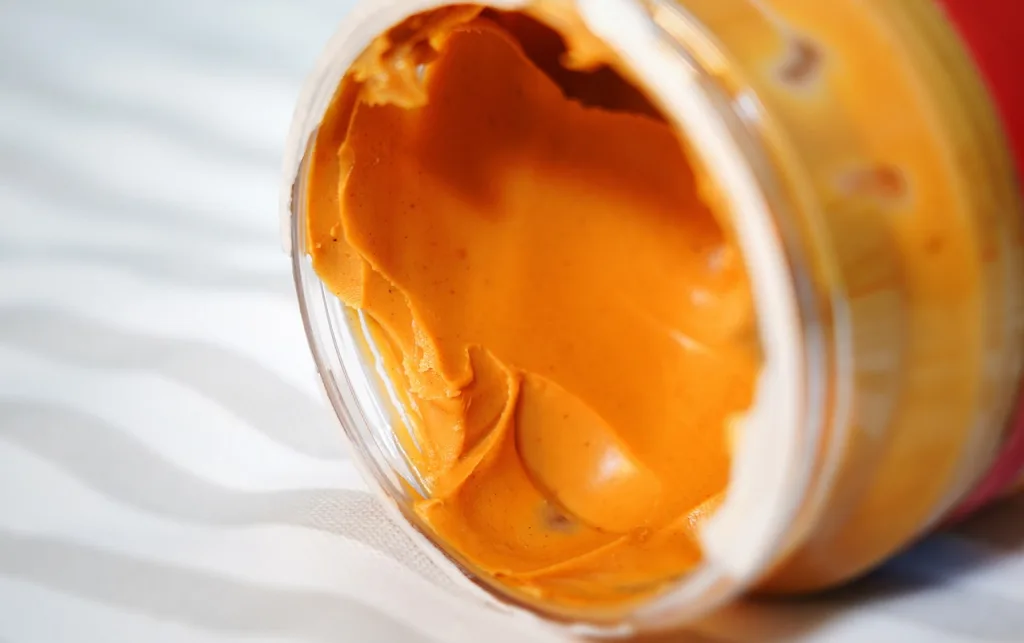
Popular Protein Rich Keto Recipes
Finding Keto-friendly, protein-rich recipes won’t be too hard once you get the hang of it. Here are some tasty and nutritious meal ideas you can try.
Easy Protein-Packed Keto Breakfast Recipes
Give a supercharged start to your day with protein-rich Keto breakfasts like scrambled eggs with avocado, sausage and cheese frittatas, or smoothies made with protein powder.
Hearty Protein-Based Keto Lunch and Dinner Recipes
For lunch and dinner, consider creating flavorful dishes like chicken or beef stir-fry, seared salmon with buttery vegetables, or a hearty salad topped with grilled tofu or cheese.
Protein Snacks for Keto Dieters
Protein-rich snacks like nuts, Greek yogurt, boiled eggs, or cheese can help keep hunger at bay between meals and maintain a consistent protein supply in your body.
Role of Protein Powders in Keto Diet
If you’re someone who struggles to meet the daily protein requirement through food alone, protein powders can come to your aid.
Benefits of Protein Powder
Protein powders are a practical way to ensure you’re getting enough protein. They can easily be added to smoothies, coffee, or even used for baking. Plus, they help support muscle recovery after workouts.
Choosing the Right Protein Powder for Keto
Keep in mind that not all protein powders are keto-friendly. Look for the ones that are low in carbs and sugars and made from high-quality sources. Whey, casein, or plant-based protein powders can be a good choice.
How to Include Protein Powder in Your Daily Routine
Incorporating protein powder into your daily routine is simple. Mix it into your smoothies, add it to your coffee or even blend it into your Greek yogurt for a high protein meal or snack.
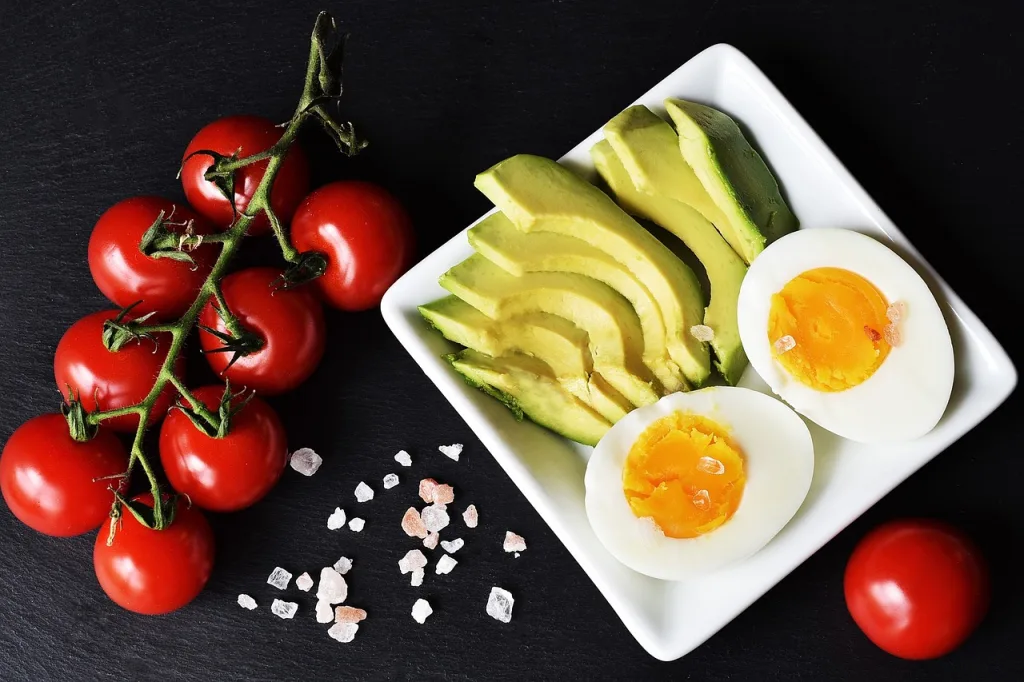
Risks and Considerations of High Protein Keto Diet
While the Keto Diet brings a multitude of benefits, it’s essential to approach it mindfully. Overdoing protein on a Keto diet can lead to potential risks.
Knowing the right amount of Protein intake
Knowing the correct amount of protein to consume is crucial. Too little may hinder your muscle growth and too much may kick you out of ketosis. It’s recommended to aim for about 20-25% of your daily calorie intake from protein.
Potential Side Effects of Excessive Protein in Keto
excessive protein on a Keto diet can be harmful as it may lead to a metabolic process called gluconeogenesis, which converts excess protein into glucose, hindering the state of ketosis. It is important to balance your protein intake.
How to balance your Protein intake in Keto Diet
To strike a balance in your protein intake, focus on having a moderate amount of protein in every meal. Keep a food journal or use a food tracking app to keep track of your protein consumption.
Staying in Ketosis with Protein
Entering and staying in ketosis is the main aim of the Keto diet. And managing protein intake plays a key role in this process.
Controlling Protein Intake to Maintain Ketosis
To maintain ketosis, keep your protein intake in check. It is commonly recommended to consume 0.8g to 1g of protein per kilogram of your body weight to avoid excess protein from turning into glucose.
Common Mistakes in Protein Intake in a Keto Diet
One common mistake that people make on a Keto diet is consuming too much protein and not enough fats, which may hinder the state of ketosis. Ensure that your diet is high in fats, moderate in protein, and low in carbs.
Tracking Your Macros and Protein Intake
Tracking your macros, especially protein, can significantly help maintain the state of ketosis. This can be done using various mobile apps or by keeping a food diary.
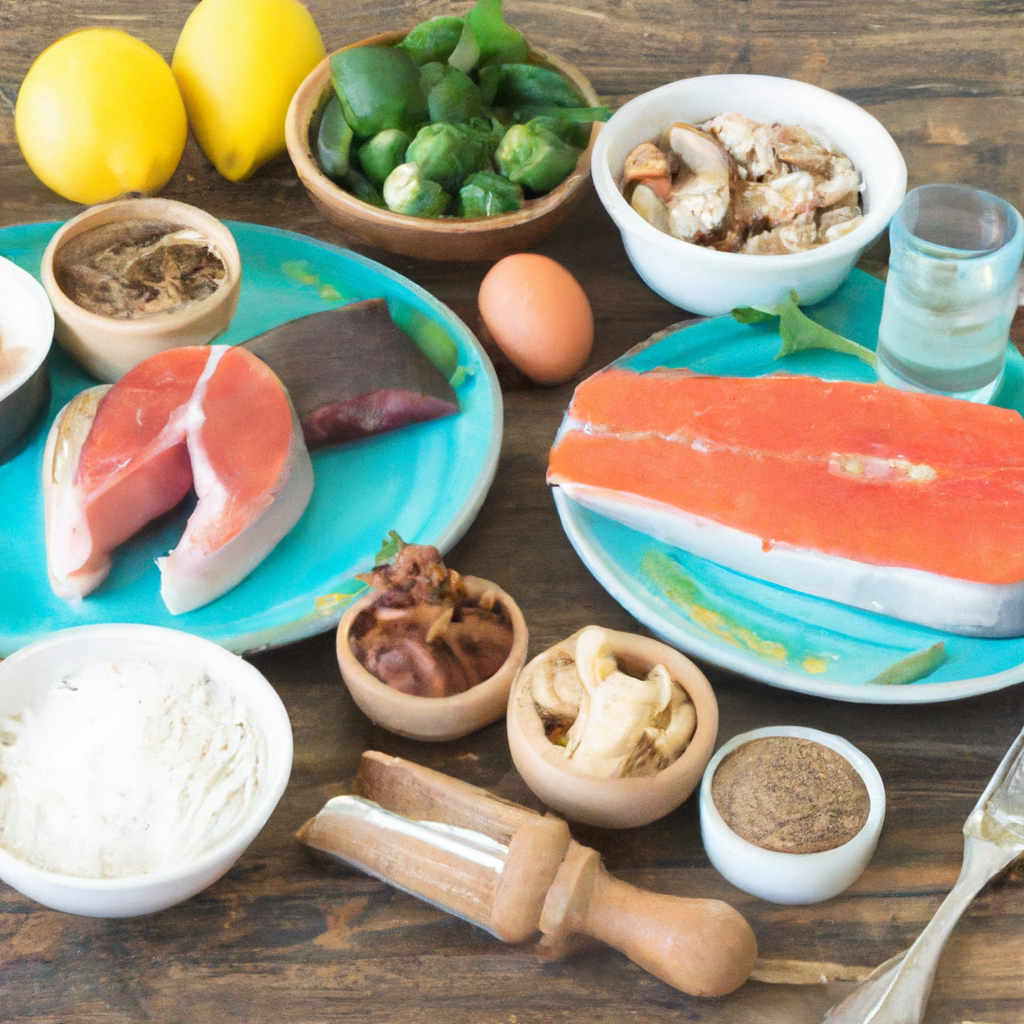
Impact of Protein on Muscle Mass in Keto Diet
While losing body fat is a common goal in a Keto diet, preserving and building muscle mass is just as important. And yes, you guessed it right! Protein plays a crucial role in this process.
Protein’s Role in Preserving and Building Muscle Mass
Protein provides the necessary amino acids to rebuild muscle tissues, thus playing a critical role in preserving and building muscle mass during a Keto diet.
Exercise and Protein Intake in Keto Diet
Allying a regular exercise regimen with a Keto diet can greatly increase the effectiveness of weight loss and muscle building. As exercise damages muscle fibers, ample protein intake is necessary to restore and rebuild them.
Importance of Adequate Protein Intake for Athletes on Keto Diet
For athletes following a Keto diet, it is crucial to increase protein intake to support their high-intensity workouts. This ensures their muscles are well-fed with the needed amino acids and helps in quicker recovery.
Conclusion: Balancing Protein-Rich Foods in Keto Diet
A high-protein Keto Diet can be a game-changer for weight loss and overall health improvement, provided it is implemented in a balanced and mindful manner.
Benefits and Challenges of High Protein Keto Diet
Including ample protein in your Keto diet brings numerous benefits, from lean muscle mass preservation to enhanced satiety. However, the challenges lie in controlling the amount to stay in ketosis and choosing high-quality, keto-friendly protein sources.
Tailoring Keto Diet to Your Unique Nutritional needs
Always remember, it’s not a one-size-fits-all approach when it comes to dieting. The protein ratio in your Keto diet should be tailored according to your body weight, fitness goals, lifestyle, and nutritional needs.
Success Stories of Protein-Rich Keto Weight Loss
There are numerous success stories of people who have achieved significant weight loss and improved health using a protein-rich Keto diet. Take inspiration from them, but remember that it’s your unique journey. Experiment wisely to find the optimal balance of proteins in your Keto diet. Here’s to your health and wellness!
